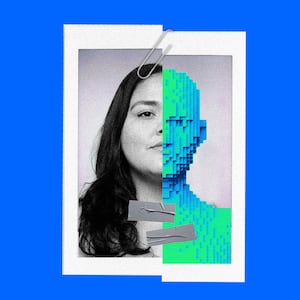At an award ceremony for one of Japan’s most prestigious literary prizes on Wednesday night, author Rie Kudan revealed her winning novel, The Tokyo Tower of Sympathy, was written with the help of an unusual ghostwriter: ChatGPT.
Kudan said that around five percent of her book “quoted verbatim the sentences generated by AI,” potentially embarrassing the judging committee who had heaped praise on the writing. “The work is flawless and it’s difficult to find any faults,” one judge, Shuichi Yoshida, told The Times.
Kudan’s novel is set in an imagined near future where AI has become an integral part of daily life. It follows the story of Sara Makina, an architect who builds a tower in a Tokyo park designed to offer a place where criminals are rehabilitated and explores her discomfort with society’s tolerance towards those who break the law.
Outside of her literary work, Kudan says she often plays around with AI and uses the technology to share thoughts that she “can never talk to anyone else about.” Admitting to using it in her writing, apparently, wasn’t one of them. Kudan added that she hopes to maintain “good relationships” with the tech and use it to “unleash my creativity” with it going forward, according to AFP.
The Akutagawa Prize, which Kudan won, is awarded twice a year to new writers (and chatbots too, it seems). It’s just the latest award handed to an artist who has admitted that their lauded creations were made with the help of AI.
In 2022, the Colorado State Fair’s fine arts competition was embroiled in controversy when a prize in its “digitally manipulated photography” prize was given to a piece created in part with Midjourney, an AI-powered image-generating tool. Then last year, an artist turned down their prize from the Sony World Photography Awards because their prize-winning photograph wasn’t actually a photograph at all, but rather a digital image made using the AI program DALL-E 2.
So don’t worry, corner-cutting students, if you’re facing academic recriminations for using AI in your work: use it to win prestigious arts prizes instead.







